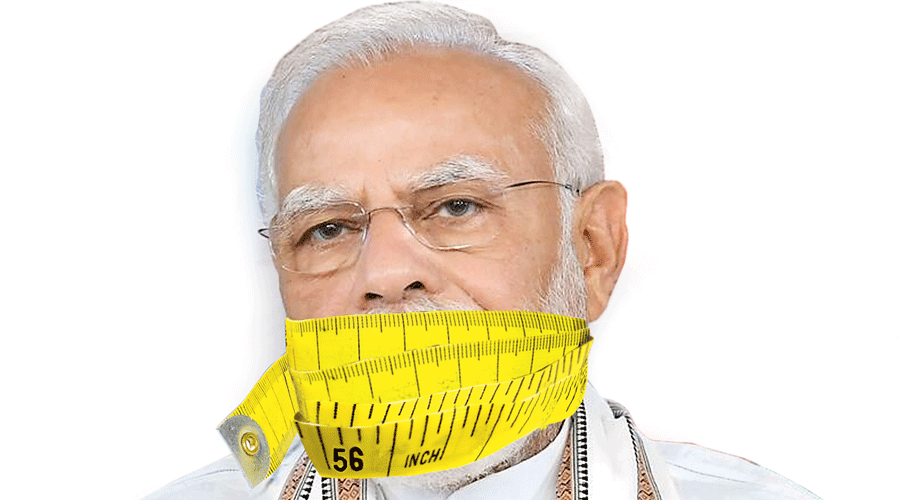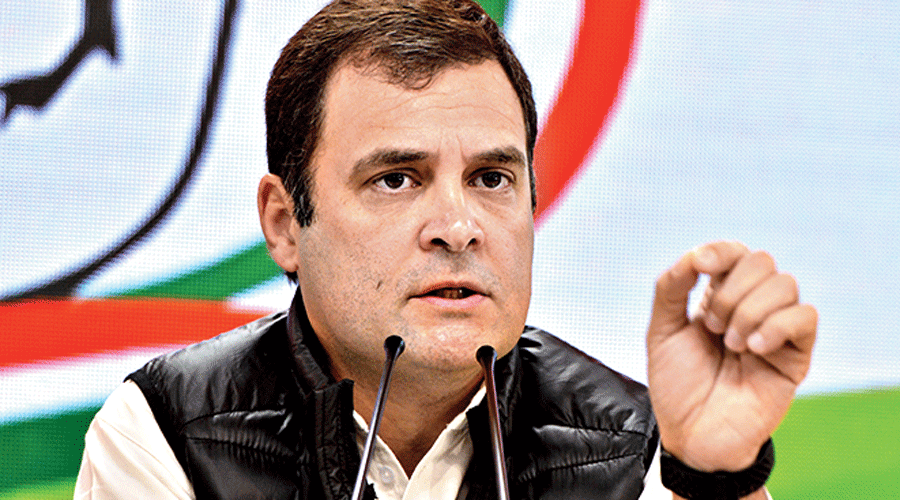The Supreme Court on Thursday said that the committee it had appointed to probe allegations of unauthorised surveillance of citizens through the Pegasus spyware has said the “government has not cooperated fully” with the investigation.
The panel’s report also said that five of the 29 devices submitted for examination had revealed the presence of “malware” but any link to the Israeli spyware could not be established, Chief Justice of India N.V. Ramana added, reading out brief extracts in a packed courtroom.
“One thing the committee has said is that the government has not cooperated fully with the task to examine the phones for malware or spyware. This seems to be the same stand you took here,” Justice Ramana told solicitor-general Tushar Mehta, who expressed ignorance about this.
The apex court had appointed the committee after the Centre refused to admit or deny the allegations of illegal snooping via Pegasus, citing national interest.
The committee was formed on October 27 last year after an international media consortium reported that over 300 verified Indian mobile phone numbers were on the list of potential targets of snooping via Pegasus, sold only to government agencies.
A batch of public interest petitions had sought an independent probe into allegations of illegal surveillance of politicians, journalists, activists and others.
Senior advocates Kapil Sibal and Vrinda Grover, appearing for some of the petitioners, asked that the nature of the malware be revealed. The bench, which included Justices Surya Kant and Hima Kohli, said it would decide about this after weighing the committee’s recommendations for a degree of confidentiality.
The BJP later said the Opposition’s allegations were part of a “motivated campaign” and demanded an apology from the Congress and Rahul Gandhi.
The Congress retorted that by failing to cooperate with the probe, the government had virtually admitted culpability. It requested the apex court to take strict action against the government.
The Supreme Court bench on Thursday said it was a “little concerned” that five of the 29 phones contained “some malware” but added that “it does not mean that it is a malware from the Pegasus”.
The bench will now hear the matter after four weeks.
The committee, headed by the retired Supreme Court judge, Justice Raveendran, had submitted the sealed-cover report a month ago. The bench has made only a part of its contents public.
Justice Ramana said the report had been submitted in three parts: one relating to digital images of the phones examined for spyware infection, the report of the technical committee, and the overall observations by Justice Raveendran.
“Some part of the report is confidential and may also contain private information. The committee is of the view that technical committee reports may not be made public,” Justice Ramana said.
“We are uploading it (portions of the report) on the Supreme Court website and there is no secret. We will… see which portions can be released — it’s a huge report.”
The court said the committee had made several recommendations such as:
⚫ A special agency to investigate cyber attacks and strengthen the cyber security network of the country.
⚫ New laws and regulations to protect citizens’ right to privacy and shield them from illegal surveillance and cyber attacks.
⚫ Prosecution of private firms that resort to illegal surveillance.
⚫ A mechanism for citizens to air their grievances against alleged surveillance and infection of their electronic devises with spyware or malware.
“The report says there are certain malwares which could be misused and cause security concern as well as violate the privacy of citizens. It suggests measures to prevent misuse of malware for surveillance,” the court said.
Sibal said: “We don’t want portions which have national security implications but we need to know what the malware was and if a redacted version can be given to the ones who gave their phones.”
Justice Kant said: “We will go through the report and then share the report. Accordingly, if some portions are not shareworthy, we will not make it public.”
Justice Ramana said that despite carrying out an extensive exercise, none of the committee members had accepted any remuneration.
The technical members of the panel were Naveen Kumar Chaudhary, Prabaharan P. and Ashwin Anil Gumaste, PTI reported. Justice Raveendran was assisted by former IPS officer Alok Joshi and cyber security expert Sundeep Oberoi in monitoring the technical panel’s probe.











